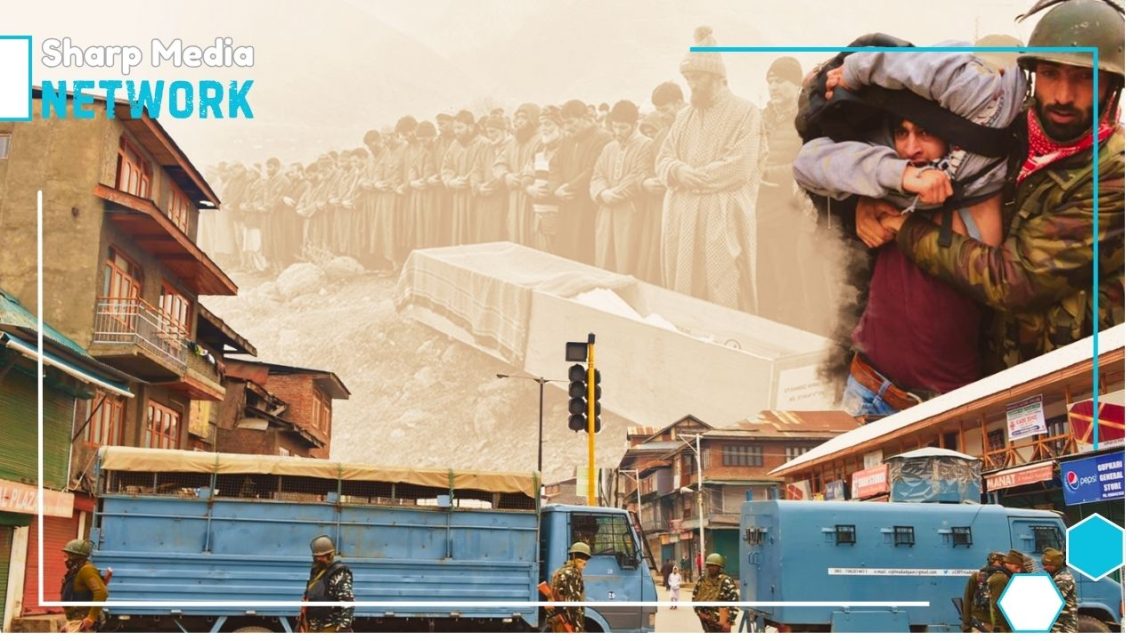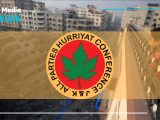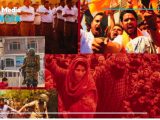
India’s Extreme Strategy to Erase Identity and Rights in IIOJK
November 30, 2024The plight of Indian Illegally Occupied Jammu and Kashmir (IIOJK) continues to deepen, as decades of human rights violations now culminate in an aggressive campaign to dispossess and marginalize its people.
Since the revocation of Articles 370 and 35A in 2019, the Indian government has institutionalized settler colonialism, aiming to displace Kashmiri Muslims and erase their cultural identity. These moves dismantled constitutional protections, enabling a land grab disguised as “development.”
Under the guise of “anti-encroachment drives,” authorities have identified over 200,000 acres of “encroached” land. However, these lands were historically owned under legal frameworks protecting Kashmiri residents. Now, these rights are systematically being erased.
By amending the Jammu and Kashmir Development Act in 2020, the Indian government has empowered its military to seize “strategic areas,” including ecologically sensitive zones, without local consent. This militarized land grab has disrupted communities and displaced thousands.
India’s approach mirrors Israel’s settler colonialism, seeking to economically and socially disempower indigenous populations. Policies promoting industrial development, paired with property seizures, pave the way for demographic engineering favoring Hindu settlers.
This demographic shift is particularly alarming due to the active involvement of the Rashtriya Swayamsevak Sangh (RSS), a nationalist organization that envisions transforming Kashmir’s religious and cultural identity. The region’s Muslim majority faces further marginalization.
The Indian state has not only weaponized laws like UAPA and AFSPA but also exploited institutions like the National Investigation Agency (NIA) to criminalize dissent. Political activists, journalists, and even civilians demanding justice are silenced under the pretext of “anti-terrorism.”
Kashmiris endure arbitrary detentions, torture, and extrajudicial killings, with reports of sexual violence being used as a weapon of war. These inhumane practices, widely documented by international human rights organizations, reveal the extent of state-sponsored repression.
Peaceful protests in IOJK are met with excessive force, perpetuating cycles of violence. The Indian government’s actions blatantly violate United Nations Security Council (UNSC) resolutions that affirm the Kashmiri people’s right to self-determination.
The international community must act urgently. Sustained diplomatic pressure, robust media campaigns, and advocacy for human rights are essential to holding India accountable. Turning a blind eye emboldens further violations.
For Kashmiris, this is not merely a fight for land—it is a battle for identity, dignity, and survival. The world must stand with them, ensuring their voices are amplified, and their right to self-determination is honored. Peace cannot prevail through oppression; it demands justice.

